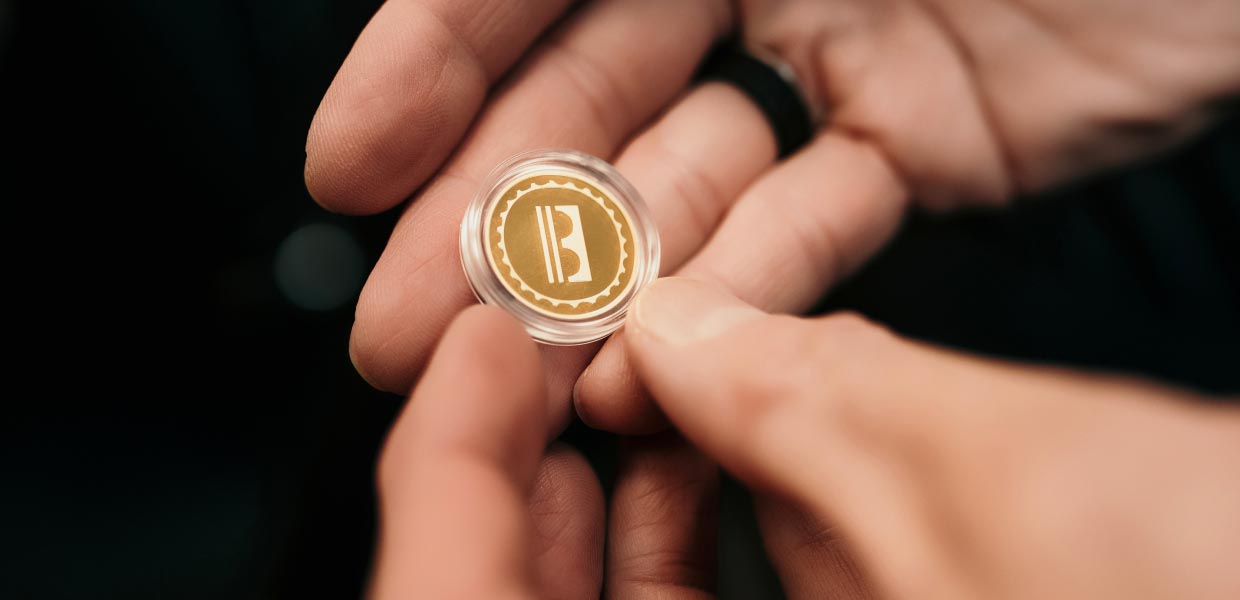Basic facts on Bitcoin

What is Bitcoin?
Bitcoin is a virtual currency, whose „coin“ exists only as a record on a computer network. It is designed in such a manner so that nobody can influence it, counterfeit it or manage your means. 21 million Bitcoins is released into the circulation step by step, in a predictable pace; in 2025, 95% of the total volume is planned to be gained by mining, and the rest of Bitcoin is planned to be gained by 2140.
How is Bitcoin held?
You can hold Bitcoin in your wallet or entrust it to a third party. Bitcoin wallet consists of a randomly regenerated public address and a private key, which makes access to the crypto-currencies in the given wallet possible. Only the person with the knowledge of the key can manage the Bitcoin. Losing the private key means a permanent loss of the Bitcoin in your wallet. So, if you do not want to care for your wallet, safe-keeping and back-up of the private key, you can entrust the Bitcoin to a third-party for safe-keeping it. We recommend you to choose a verified service, with a good record and a verified provider, for example BitcoinBanking.
How to choose the Bitcoin wallet?
Generally, the wallets can be divided into two groups, i.e. electronic and hardware wallets. Hardware wallets, e.g. Trezor, are suitable for those who want to have Bitcoin as an investment kept in a safe place which is off-line. Electronic wallets are suitable for smaller exchanged volumes, sending of the means, payment for goods or services. Electronic wallets are, generally speaking, an application for a computer or mobile phone. An example of a favourite wallet is Mycelium.
Bitcoin is anonymous!
The complete accounting book and history of all transaction is publicly accessible, however the addresses themselves are not directly connected to concrete users. Using an advance analysis, a probable owner of the Bitcoin can be traced. However, much efforts and knowledge is required– even so, success cannot be guaranteed. From the view-point of safety, we do not recommend anybody to carry out payment to unknown address or unverified merchants.
Must I buy a whole Bitcoin?
No, Bitcoin can be divided into 8 decimal places. Even if the Bitcoin exchange rate is high, smaller items (e.g. consumption of beer in a restaurant) can be paid by its fractions. A hundredth of Bitcoin is called centibitcoin, a thousandth is called milibitcoin, and the least unit is satoshi, which is a millionth of Bitcoin (0.00000001).
Can man pay with Bitcoin?
Yes, there are many merchants and services enabling payment with Bitcoin, for example world-wide Microsoft services or Alza or Pražská plynárenská company in Bohemia. At the present time, it is relatively easy to start accepting crypto-currencies; there are many services enabling introduction of this solution in both e-shops and stone shops. A list for the Czech Republic can be found for example HERE
Is Bitcoin regulated?
Regulation of crypto-currencies varies in different countries. In the Czech Republic, Bitcoin is not considered to be a currency or a commodity – Bitcoin is a security of a special kind. However, the firms managing Bitcoin and facilitating its exchange have special obligations and are subjected to the same strict rules against money laundering as in the case of the standard financial transactions.